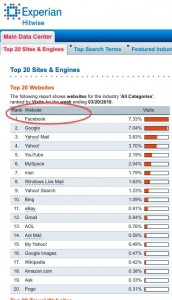The Apple Store is the most profitable retailer in America, generating an average of $5,600 per square foot and attracting more than 20,000 visitors a week, according to author Carmine Gallo, The Apple Experience: Secrets to Building Insanely Great Customer Loyalty. She writes that when Steve Jobs first started The Apple Store he did not ask the question, “How will we grow our market share from 5 to 10 percent?” He asked, “How do we enrich people’s lives?”
Reading this made me ask:
Are law firms stuck in the merely “aspirational” phase of implementing sales and service (and most are) because their business model is to “grow market share from 5 to 10 percent by selling more services?”
Advice from Jan Anne Dubin on reaching clients through sales and service
So I called Jan Anne Dubin, a long-standing pioneer in legal services marketing (and sales), former Director to AmLaw 100 firms, and now Chicago-based adviser to professional firms of varied industries. I asked her to talk about the mistakes law firms are making and how shifting their business model to one that can “enrich people’s lives” might be the gateway to growth like The Apple Store has achieved. This post summarizes the highlights of that conversation. Attributions to Jan (in italics) are paraphrased from the notes I took and are not verbatim.
First, Jan told me that she knows of only a handful of law firms who have “cracked the code.” She said that, law firms are leaving way too much on the table in the sales and service side because their efforts are misplaced.
In Jan’s 25-plus years of legal services marketing, primarily as an in-house professional, she has seen first hand how her relationships, the ones she owns, have been the catalyst for new engagements for the law firms she has served.
New business engagements are almost always the result of a relationship of some sort or other between a contact in the law firm and a contact in the client organization. Everyone who touches the client experience must know that fundamentally it is not just the features of the practice that will open a door—it’s hard to differentiate. It’s not about having the sexiest brand statement or website, either—though all have a role to play. A door is opened because a trusted relationship exists. It’s as simple as that. If a relationship is motivated by “enriching lives,” i.e., adding value rather than generating revenue, magic can happen.
This seems obvious to me. Whenever I ask a group of lawyers where their last piece of new business originated, 9 out of 10 say; a personal referral—a relationship. Why then do law firms find it so difficult to trust the sales and service model?
She said that the first mistake many law firms make today is giving lip service to the buzzwords of sales and service thinking that this is forward motion.
They might rebrand marketing roles, update professional titles, or hire a lawyer with personal rainmaking skills to lead the firm efforts, but this is equivalent to just talking about sales and marketing. They tend to misplace their focus away from the things that really need to happen. (Not necessarily in this order.)
- Firms need to trust sales and marketing professionals.
- Sales and service needs to earn the trust of their organization, including any specific attorneys with whom they must align, in order to gain a seat-at-the-table (a very critical component). This process varies but typically involves the ability of the professional to demonstrate meaningful value to the client/attorney relationship. They will inculcate themselves with the client and attorney, be personable, open and innovative.
- Sales professionals need to cultivate their own relationships with individuals who are decision makers, end users, or referral sources.
- Anyone responsible for sales—attorneys and biz dev professionals—must understand and respect the dynamics of how relationships work.
The relationship may be between a lawyer or a client service and sales professional and the decision maker, the end-user, or a trusted referral source to the client organization; it varies, but there will be a relationship involved. Knowing where to look for new relationships and knowing how to move a relationship forward toward trust is where many lawyers and sales professionals fail—it demands your time, something most are not eager to give up. But, once a trusted relationship is established, if there is a need that you or your law firm can fill, you will likely be called upon to be part of the solution.
The Apple Store Model
At The Apple Store, the non-commissioned sales staff is empowered to do “what they believe is the right thing to do.” It doesn’t matter how much time they spend chatting with customers about their families or their day, or whether or not the client leaves the store with a bag of Apples. Their first and most important job is to kick off with a beneficial relationship.
If you’ve ever been to an Apple Store you’ve probably experienced it. Apple Store sales staffers are coached to do the following:
- Approach the customer with a customized, warm greeting,
- Probe politely to understand their needs,
- Present a benefit oriented, not feature oriented, solution that they can take home today,
- Listen for and address unresolved questions,
- End the interaction with a fond farewell, and an invitation to return.
If you’re like most Apple Store visitors, a sale typically follows. Maybe not today, but the message was loud and clear—you are more than the object that increases our market share—Apple Store employees are there to enrich your life with their products and services.
The Apple Store Model translated for law firms
Professionals that take the time to own a relationship will find that it opens many doors. Law firms need to empower lawyers and sales professionals to do what they believe is the right thing to do. Jan explained that, you can’t come out selling; especially when the audience is the sophisticated in-house counsel buyer—they will run. Any sale of professional services has to be a pull not a push. The terms are these:
- Do your homework
- Research the industry of the person with whom you want to relate
- Understand needs generally and during conversation intuit specifically
- Listen more than you talk
The most acute skills for success, according to Jan, are the ability to listen, intuit, and apply information gained from discussions. That is where the magic happens.
Success comes when you can inculcate yourself into a relationship. This is important in order to posit solutions to a problem by offering several options from which they can choose, rather than simply reiterate the problem and deliver what you think the client needs.
Jan points to three top legal sales professionals that have this magic gift: Kristin Sudholz, Chief Value Officer, Drinker Biddle; Catherine Zinn, Senior Client Development Executive, DLA Piper; and Steve Bell, Chief Client Development Officer, Womble Carlyle.
They all have the magic and are able to add value to a client relationship. They work to understand the client problem beyond the obvious, do the analysis, synthesize what needs to be done, and then deliver several options, including the cost for each. And, they innovate. When you do all of this, you can create the magic—you will make it easy to be your client and you will earn the respect you need to do your job.
Finding relationships
Unfortunately, law firms can’t wait for prospects to walk into their retail store; they have to get out from behind their desk and find them. Jan recommends personal involvement in trade groups, associations, and conferences where, for example, general counsel hang out. She said such events are typically ripe with opportunity to meet new people and begin to cultivate a relationship.
The Association of Corporate Counsel (ACC) Annual Meeting has been a rich and rewarding destination for me, over the years. I put in the time and seek to meet new people and then cultivate relationships where synergies exist. When walking the halls, during the reception, or mingling with people at the hotel bar, I have uncovered numerous unexpected and unforced relationships with people that, down the road, have been instrumental in forging new business engagements.
She also said that,
You can’t sit behind your desk and expect new things to happen. You have to go out and be available to others. And, once a relationship starts, you can’t neglect it. It’s up to you to move it forward. Further, no two relationships are the same. “Every ball is different and the same approach to hitting it out of the park will not work every time.”
Jan’s advice to any firm that wants to create a loyal client is:
Remember, it’s not only the outcome of a deal or case that creates a loyal client—although that comes with the territory. It’s really about how well you can add value to everything that matters to the client, including things like budgeting, diversity, innovation, and catering to the relationship. You must constantly be working on the relationship. A loyal client is nearly always the result of a trusted relationship.
The Good News!
For any one that would like to learn more about how to crack the code, Jan will be moderating a panel of General Counsel and other in-house counsel called “The Client Hot Seat,” (and I believe it will not be the usual suspects nor the usual outcome) at the Legal Sales and Service Organization’s RainDance Conference 2012 on June 5-6, Chicago, IL. It’s not too late to register. The panel will be interactive and you can be sure that there will be tangible, innovative ideas to take away.
Disclaimer: I have received a media pass for this conference. Everything I am reporting in advance of the conference is motivated by my interest in the topics being presented AND, by my desire to enrich the lives of my readers.





To your last point…that’s where a firm that truly empowers a sales and service staff can crack the code. Lawyers have a responsibility to the client relationship but that can be primarily substantive. Let the client service team manage the account. Of course in order for this to happen you need trust to lead across the board. Thanks, always, Russell, for your insightful comments. I feel they always add an important layer to this blog and you are a great collaborator and co-pilot!!! 🙂
I don’t understand this analogy for businesses. For private individuals, Apple stores offer a decent shopping/support experience. For enterprises, Apple support is woefully inadequate compared to the services offered by vendors such as Dell, for example.
Doug, the post is conceptual. You develop new business by enriching others. This involves relating to others in the context of benefit to the customer. Law firms need to take this approach. The post is not addressing apple product or service, rather their approach to growth, which is relationship focused. If you are having problems with Apple, I think you should let them know. They might fix it.